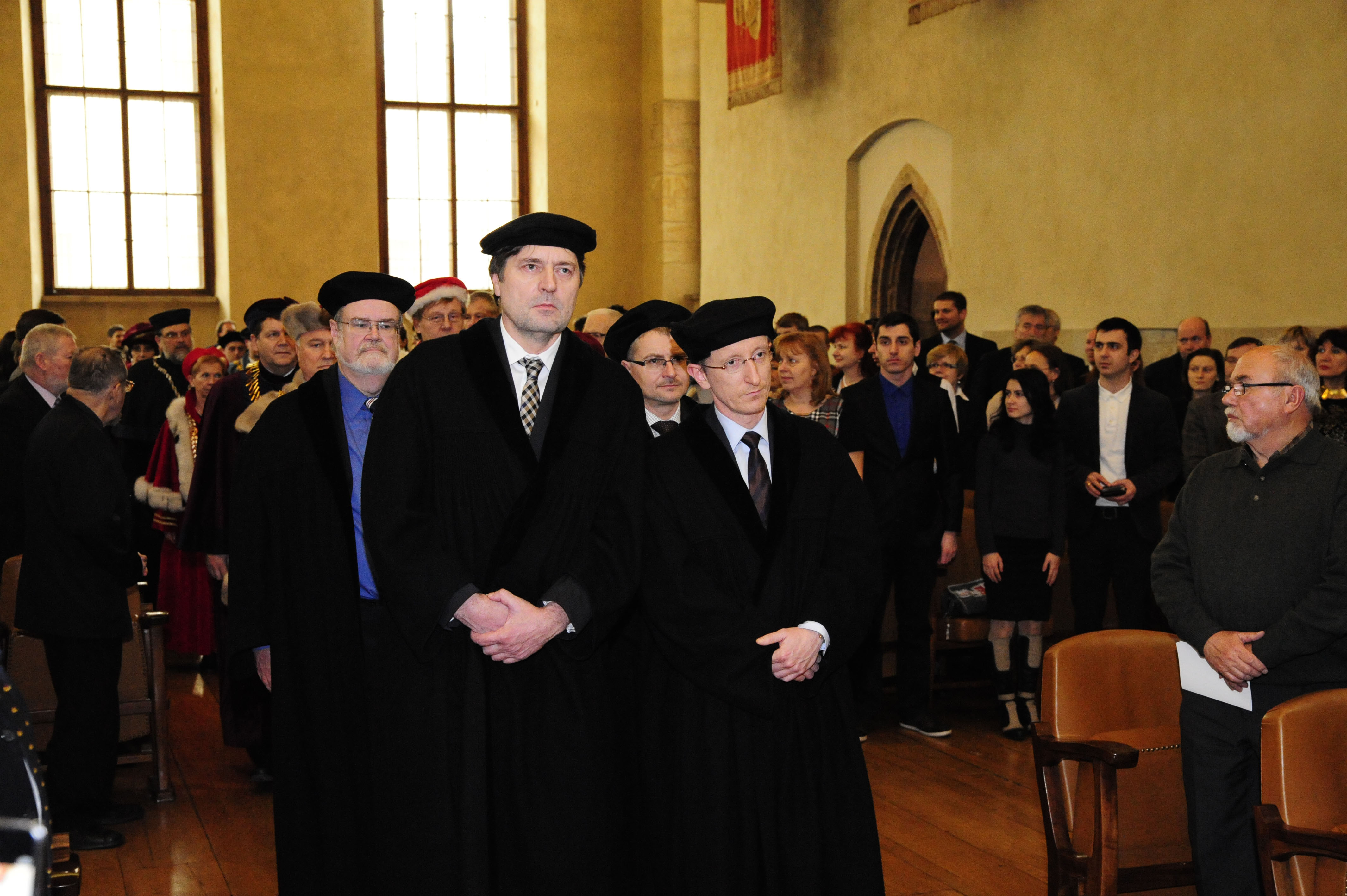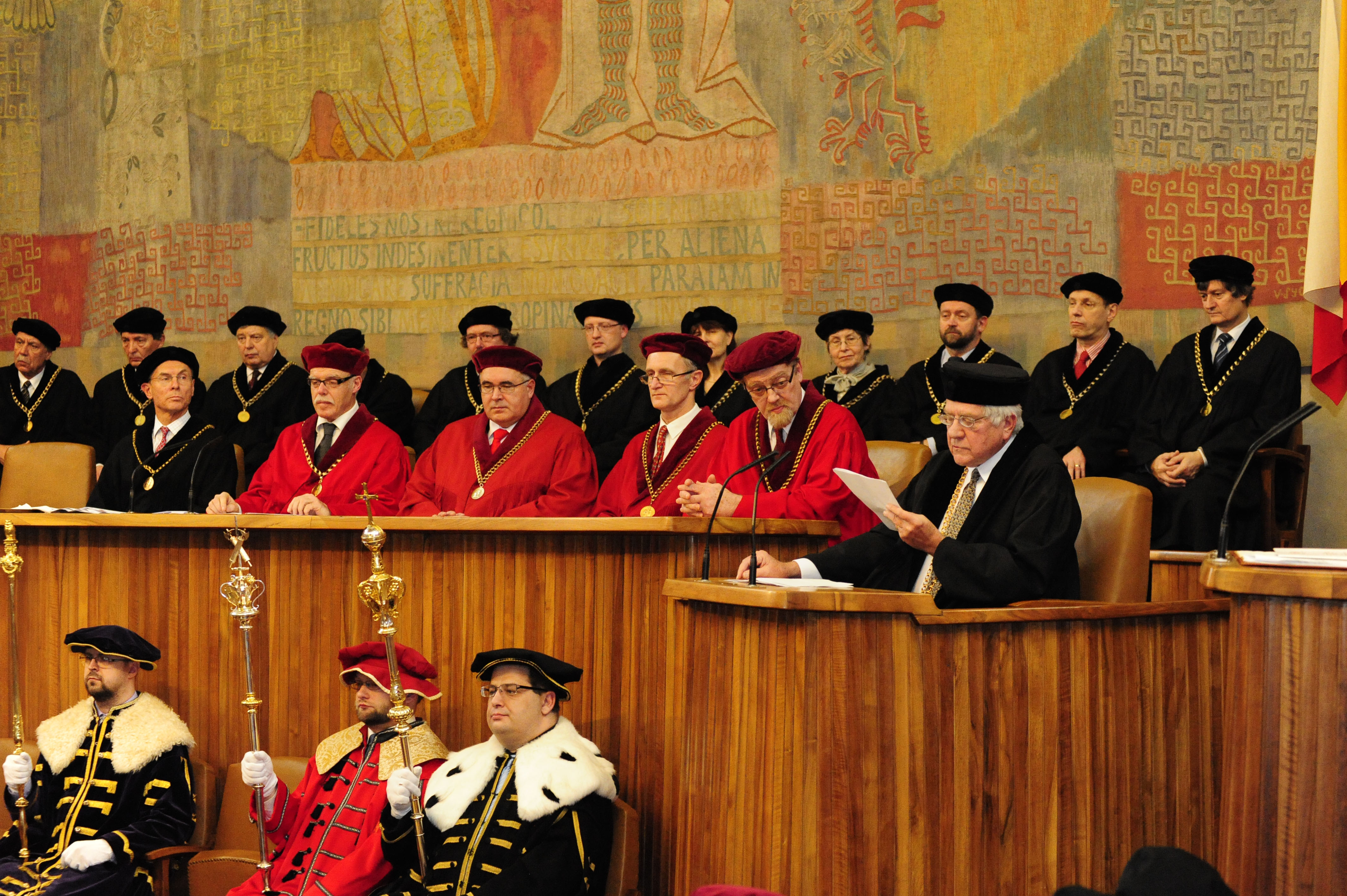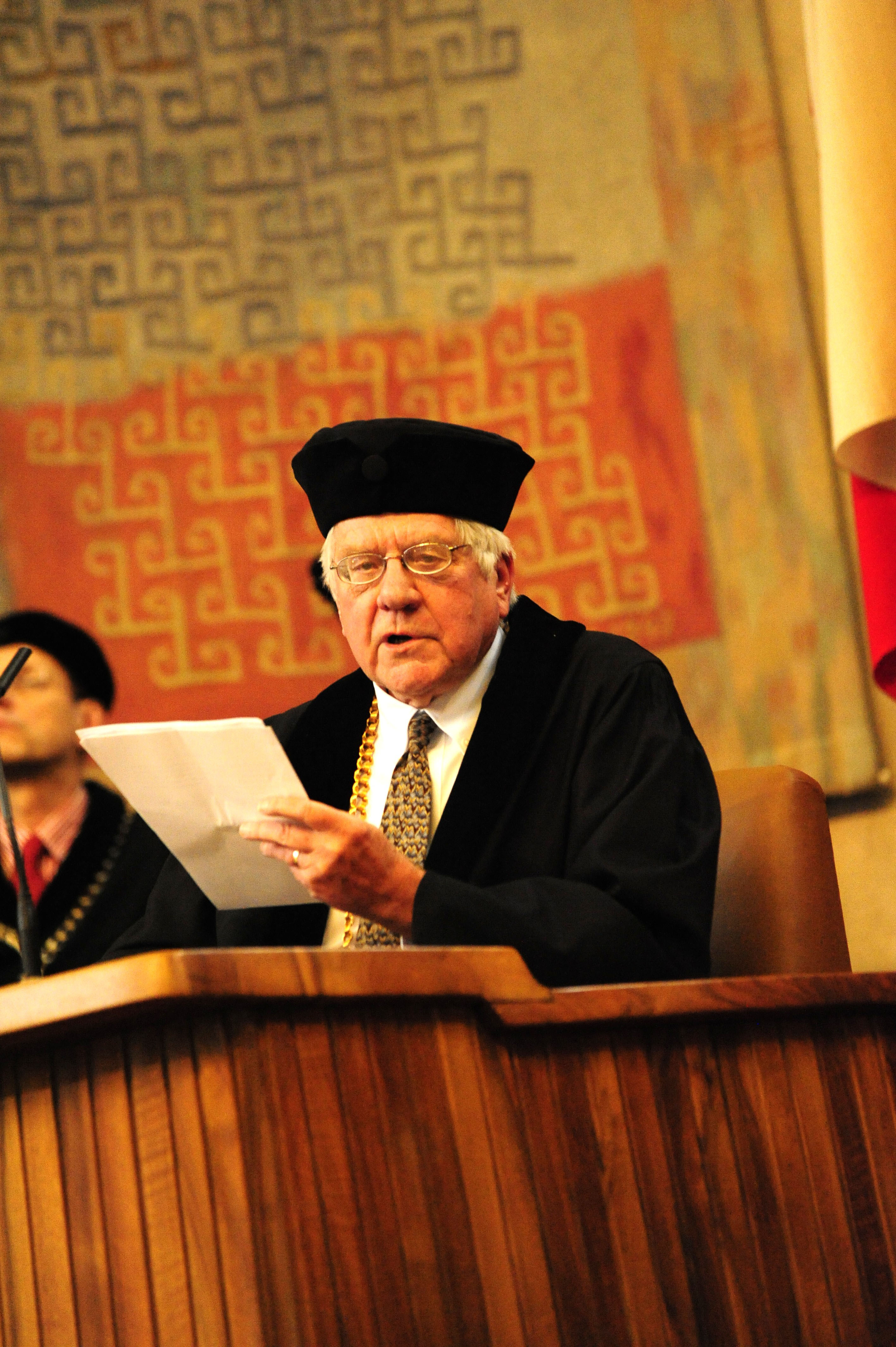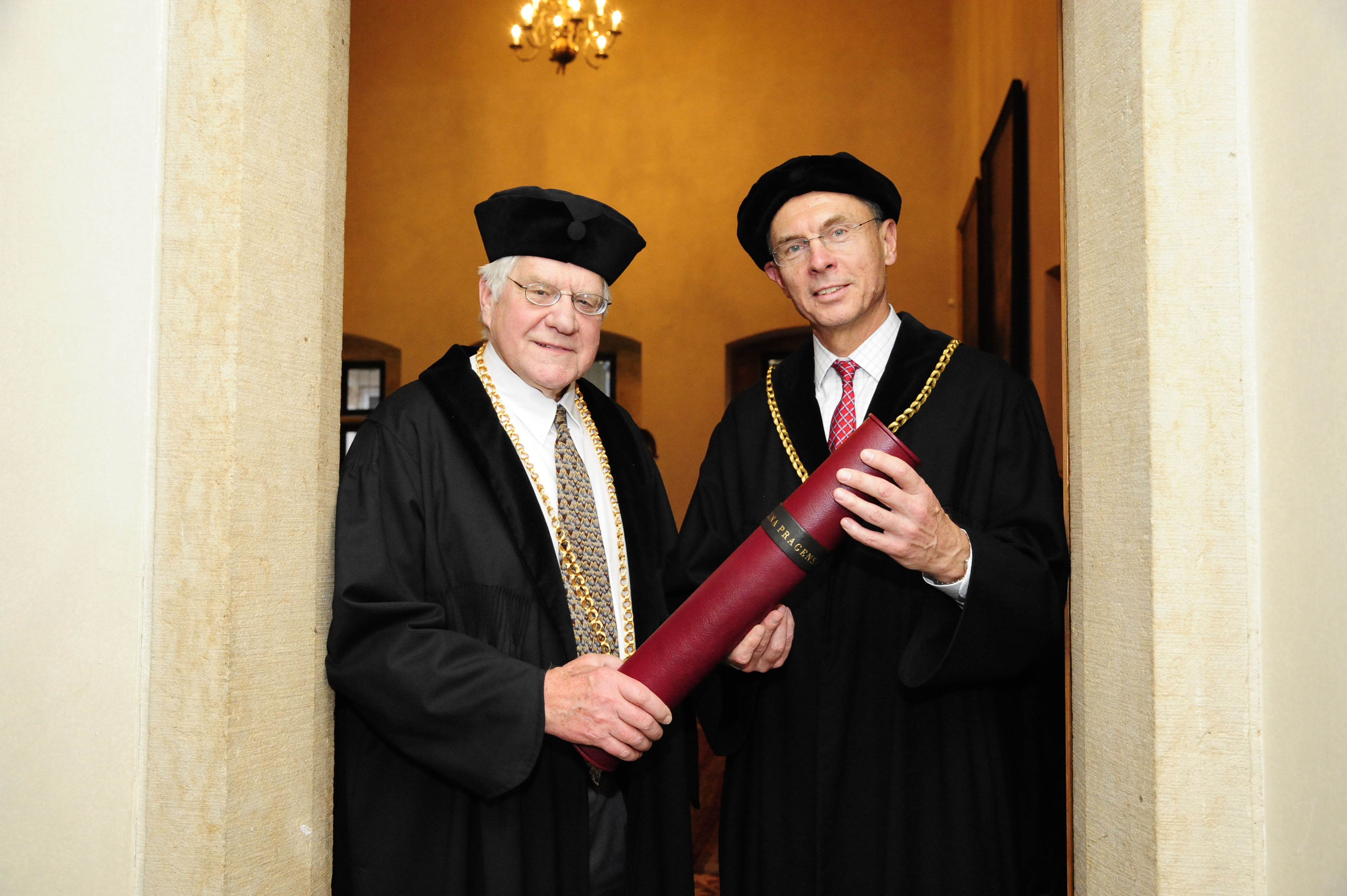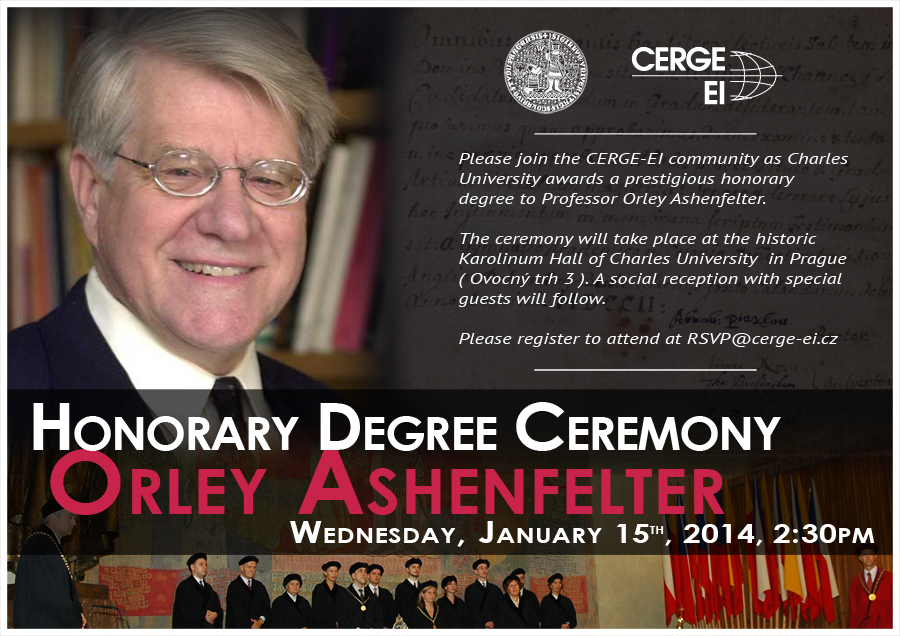In case you missed it, below is the full text of the speech Professor Ashenfelter gave upon receiving his Charles University Honorary Degree:
It is my very special privilege to be with you in Prague today for this marvelous ceremony and honor. I realize there are many people responsible for this gracious day, including the Rector of the Charles University, the faculty of the University, and those who have directly assisted in these arrangements. My thanks go to all of you.
One reason this honorary degree is special to me is that it comes from an institution with which I have had such a long and fruitful relationship. And, of course, it is being presented in a city that I and my wife have come to realize is one of the most beautiful and civilized in the world. And then there are the Czech people, who since my arrival for a first visit over 20 years ago have been so friendly to me and have progressed so far. As I came to know Czechs a little better over the years I gained some perspective on the country. My view at the outset was that there had been far too much outside interference and that, left alone, the Czech nation would prosper. But it did help me to learn a little about Czech humor, a droll style that for many—especially Germans—takes a little getting used to.
Upon my arrival, for example, I decided I needed to learn a few Czech words so I could get by in restaurants and other places where university professors are known to hang out. So, I asked a graduate student at the Charles University, “What is the most important word for me to know?” The answer, without a shade of a smile was, “Pivo.” Ah, I thought, this must be an important Czech word of greeting, so I asked, “What does Pivo mean?” Ah, the graduate student said, “it means beer.” As you can imagine I then learned the word “vino,” which is wine, and even more important it turned out, “archivni vino,” which means vintage wine.
This style of humor sometimes has to change when it is no longer possible to engage in the self-deprecation that is a key aspect of Czech (and often American) humor. Take, for example, the automobile known as the Skoda. When I first arrived in Prague in 1992 I was picked up in a proper Communist Skoda, which felt a little like a tank when you rode in it. I asked the graduate student escorting me, “What kind of car is this?” Ah, he said, “this is a Skoda.” So, I asked, “what are they like?’ His answer, “a Skoda is like a Jehovah’s Witness.” Falling for this completely, I ask, “How is a Skoda like a Jehovah’s Witness?” He answered with a straight face, “you cannot close the door on either one!” There are, of course, endless Czech jokes of this nature: A man pulls into a gas station and says, “I would like a tank of gas for my Skoda.” “Yes,” the attendant says, “that is about the right price.” Of course, only a few years later, the newly designed Skoda was named “car of the year” in Europe and the jokes had to move on.
I would, finally, like to take your time to make a few remarks that touch on the nature of the work I have done that is directly related to the other two aspects of my contributions to economics that the citation for this honor touches upon. I call these remarks.
Evidence Based Policy Evaluation and The Design of Natural Experiments
The title of these brief remarks is taken directly from one of the most famous and influential scientific books of the 20th century, RA Fisher’s Design of Experiments.1 Fisher struggled with, and analyzed, what is now considered the “gold standard” method for making causal inferences. This method, which had been hinted at in scientific work for centuries, finally reached its full development in the 20th century. Designed to produce highly credible evidence in complex situations, it is based on the idea that we determine the causal effect of a treatment or intervention by assigning randomly some fraction of the units we wish to influence and reserving the remainder as a control group. In medicine it is said that we test a drug or procedure by using randomized clinical trials, but Fisher studied primarily agricultural experiments and these are called randomized field trials.
The key point is that these are experiments that take place in the real world, not a laboratory – and they provide the final, conclusive test of the efficacy of a treatment or intervention. An interesting aspect of Fisher’s work is that it was always motivated by actual problems of experimental inference, and evolved as a fundamentally practical analysis. Fisher’s lasting contribution, now taken for granted by virtually all scientists, is a set of methods for determining when observed differences are unlikely to be due to chance alone.
Much of what I have tried to do in my own research in the last forty years is to find some way to implement highly credible methods for the study of important, and controversial problems of inference in economics. These methods, which tend to be opportunistic because they differ with the problem being studied, have come to be called “natural experiments.” Natural experiments are sometimes randomized trials (jokingly called “unnatural experiments” by a few of my colleagues), but often they must depend on some method that falls short of this gold standard. The key point is that these are analyses of what happens in practice, not just in theory, and the emphasis is on the credibility of the results.
Continue reading Prof. Orley Ashenfelter’s Honorary Degree Speech →
